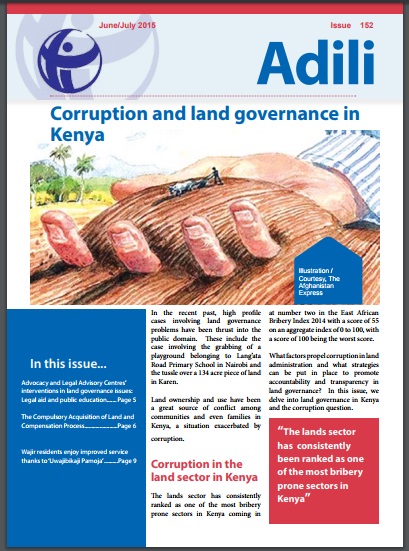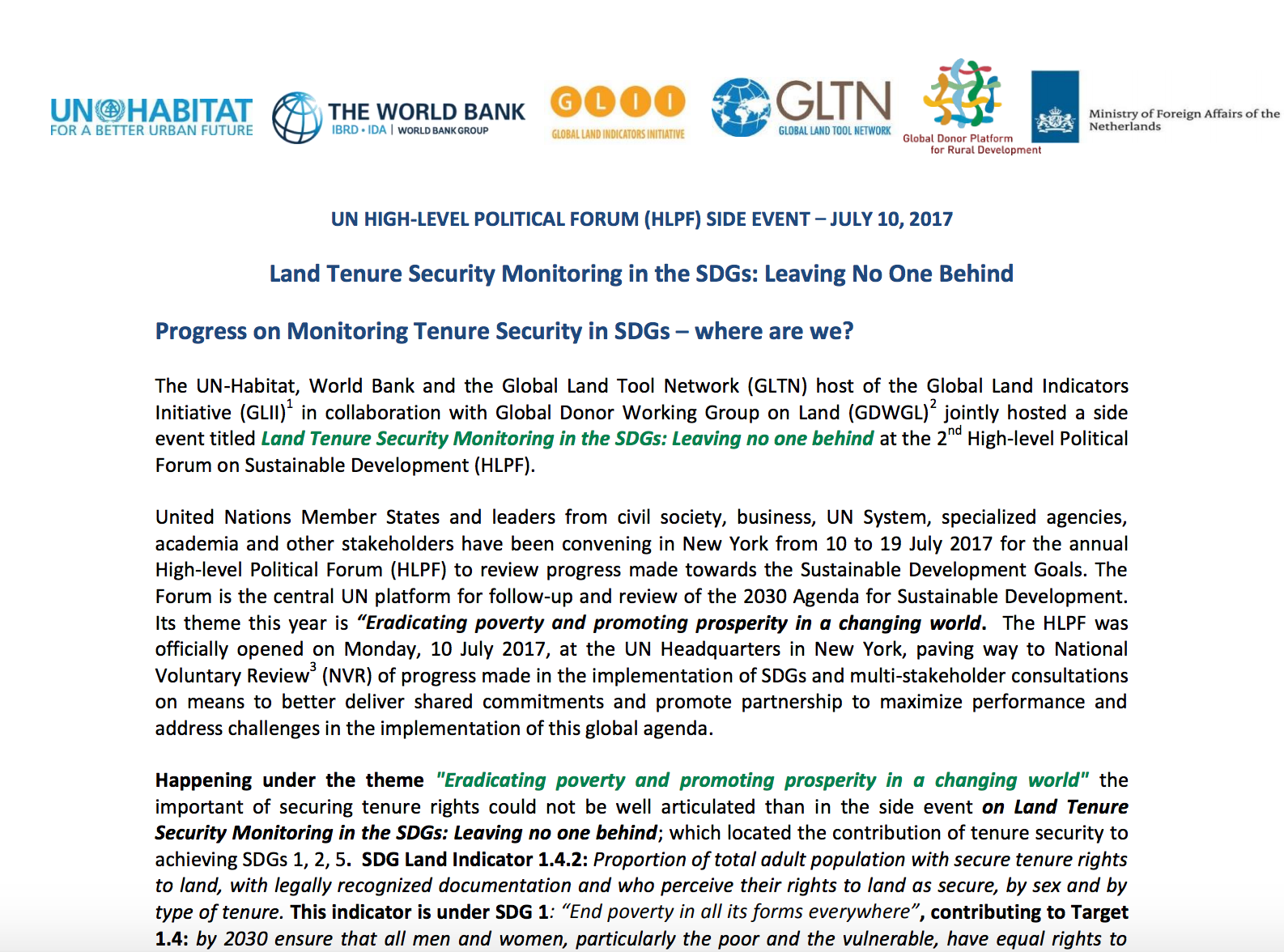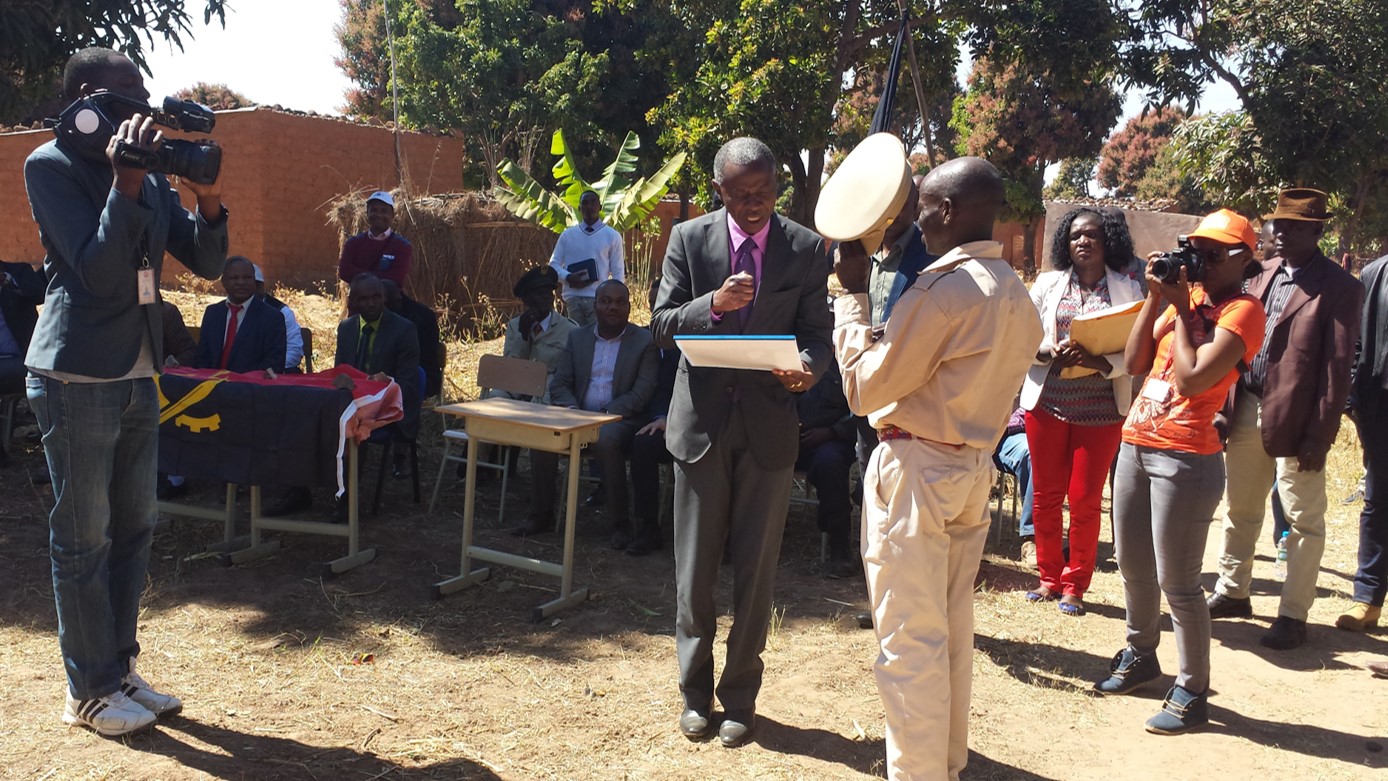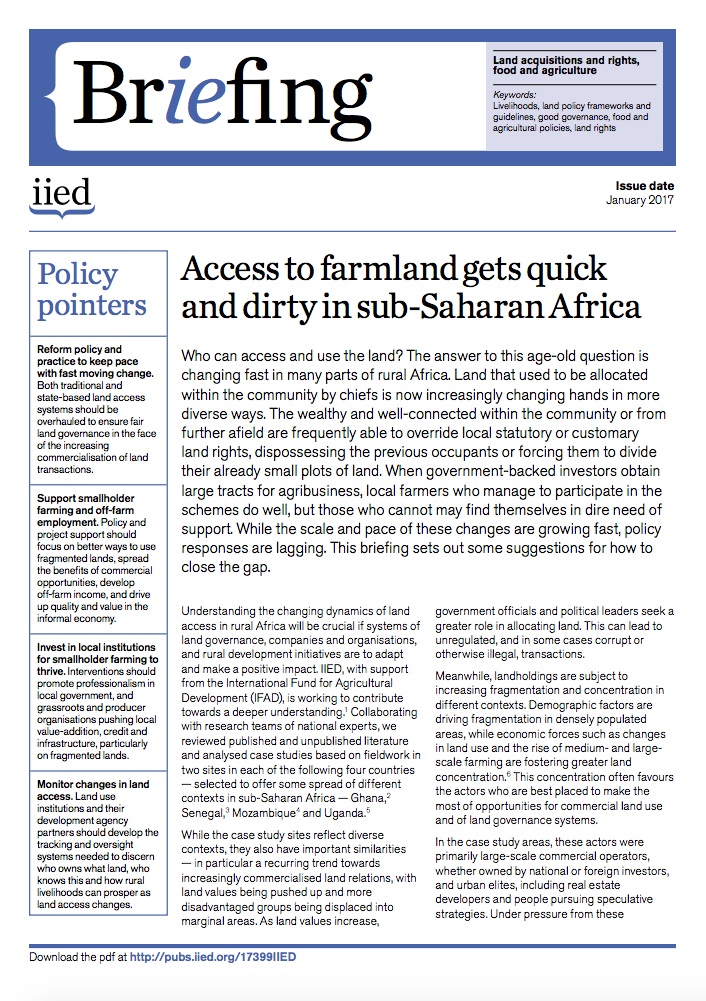Corruption and land governance in Kenya
In the recent past, high profile cases involving land governance problems have been thrust into the public domain. These include the case involving the grabbing of a playground belonging to Lang’ata Road Primary School in Nairobi and the tussle over a 134 acre piece of land in Karen. Land ownership and use have been a great source of conflict among communities and even families in Kenya, a situation exacerbated by corruption.





